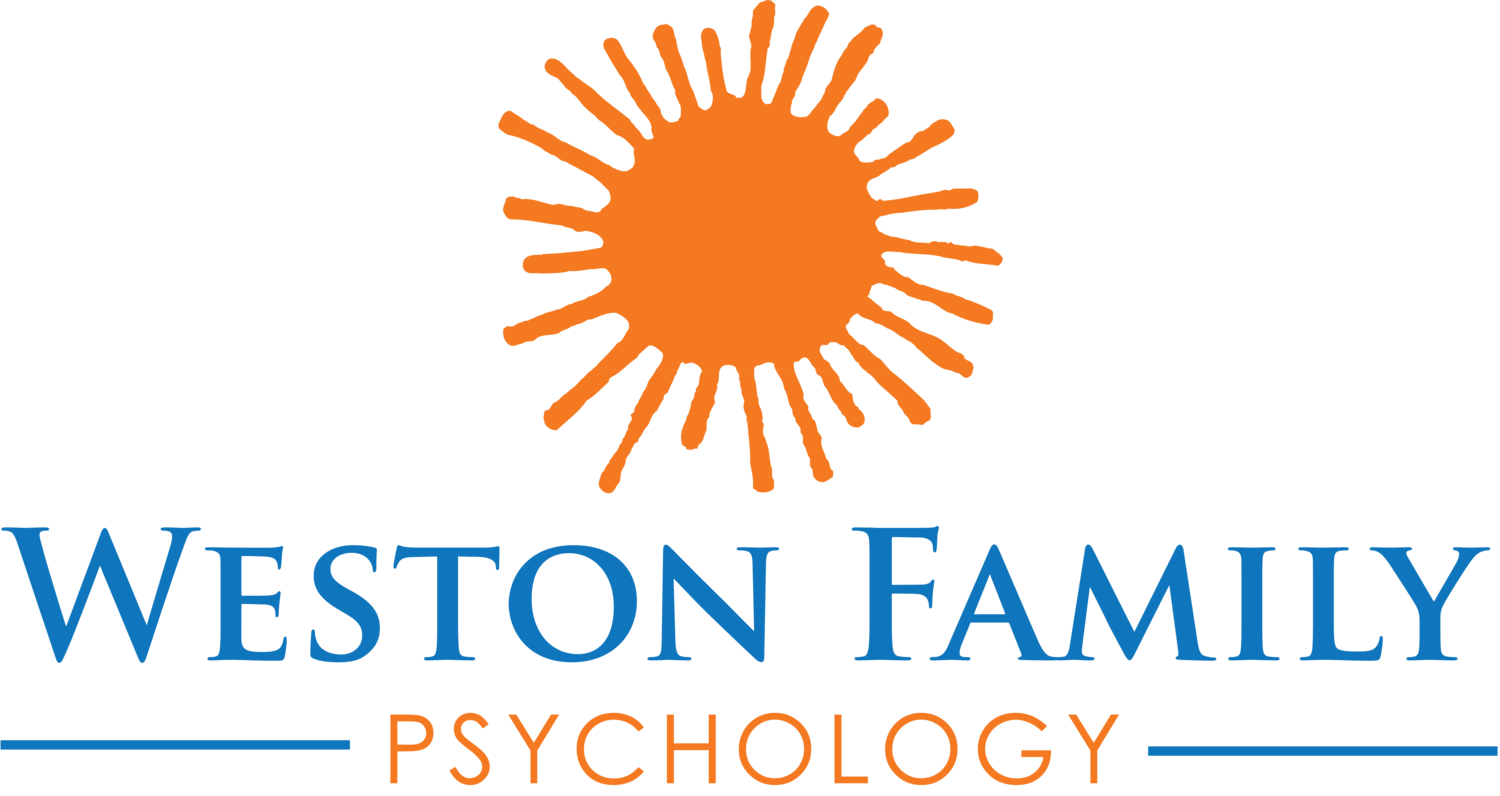Are Obsessive Thoughts and/or Compulsive Behaviors Dominating Your Life?
Do you frequently struggle with seemingly uncontrollable thoughts? It may seem like you’re caught in an endless loop of thoughts beyond your control, making you feel like you’re stuck on a hamster wheel. These thoughts can be about anything: you might constantly worry about things even when you know they aren’t likely to happen. Or maybe you replay and over-analyze events or encounters you had during the day, to the point that you can’t relax or get a full night’s sleep. We all have intrusive, frightening thoughts at times, but when we aren’t able to kick these thoughts, it can lead us to question our values or believe that we are to blame in some way. Consequently, you may have trouble managing stress, concentrating, or staying present and enjoying each moment.
Are you ready to break free from OCD?
Schedule a consultation with our dedicated therapist.
GET A FREE 15-MINUTE ASSESSMENTMaking things more difficult, some obsessive thought patterns may lead to compulsive behaviors. You might feel a strong need to have everything “just right.” As a result, you may find yourself cleaning things that don’t really need to be cleaned, avoiding touching things, or washing your hands excessively for fear of contamination. Or maybe you keep getting up at night to check that the oven is off or the doors are locked. You may realize that these thought patterns and behaviors aren’t healthy, but you struggle with how to break the cycle.
There are empirically validated treatments for obsessive compulsive disorder (OCD) that will provide you with the skills to change these unhealthy behaviors.
Understanding OCD: You Are Not Alone
Obsessive-compulsive disorder is more common than you may think. It tends to be a genetic condition that runs in families, often accompanied by depression, anxiety, and other conditions. Millions of people are diagnosed with OCD each year, and it affects roughly 1 in 40 adults and 1 in 100 children in the United States. While some may treat obsessive compulsive disorder as a personality quirk (“I’m so OCD about keeping my house clean”), it’s more serious than that. Unfortunately, because of the stigma associated with obsessive compulsive disorder and mental health, many people suffer in silence.
OCD is an established mental health disorder with a variety of risk factors, including genetics, brain structure and functioning, environmental stressors, pregnancy and postpartum, and the presence of other mental health or neurological conditions. OCD presents with symptoms that need to be managed, the same way that a diabetic needs to manage their symptoms in order to stay healthy. Acting on compulsive behavior actually ends up reinforcing the need to perform those compulsions in the first place. Not only is this mentally exhausting, but the rituals can be very time consuming and make it hard to keep up with personal and professional obligations.
There are different types of obsessive compulsive disorder—including fear of contamination, fear of harming yourself or others, obsession with symmetry, and performing counting or arranging rituals (just to name a few). And because your experience may not look like others, it can be hard knowing where to start treatment.
If you have a contamination fear, for example, you may wash your hands excessively throughout the day, avoid using any bathroom other than the toilet at home, and avoid touching door handles or anything else that leaves you feeling “dirty” or contaminated. If you have perfectionist or “just right” OCD, you might spend an excessive amount of time completing tasks due to concern with making mistakes or maintaining organization.
Thankfully, therapy for obsessive compulsive disorder can help you find relief by changing neurological pathways in the brain while strengthening new ones. This allows you to recognize obsessive thinking, change compulsive behaviors, and function in a healthier way.
Children and Adolescents with OCD
A child with intrusive thoughts may engage in “magical thinking.” This is when a child believes that thinking of certain words or images, seeing certain pictures, standing on pavement cracks, or other uncontrollable events or situations will result in something terrible occurring. Hence, they engage in compulsive behaviors in an attempt to mitigate the risks.
Children may check numerous times to see if the door is locked, or they might call their parents excessively for reassurance and to make sure they are safe. “Just right” OCD in children can impact academic performance and lead to stress or anxiety. Your child may feel the need to rewrite or reread their homework many times over until it feels “just right.”
Children often involve their parents in their rituals. They may require accommodation, ask repetitive questions, and often worry about harm occurring to their loved ones. They may ask to have their closet checked or make the parent engage in their nighttime ritual.
A small number of children can develop a sudden and intense onset of OCD symptoms and behaviors after a bout with strep throat or other infections. PANDAS (Pediatric Autoimmune Neuropsychiatric Disorder Associated with Streptococcal infection) is an autoimmune condition initially triggered by strep infections, which appears to disrupt a child’s normal neurologic activity. PANS (Pediatric Acute-onset Neuropsychiatric Syndrome), is associated with a variety of different infections. Despite their different causes, PANDAS or PANS possess a nearly identical symptom presentation, and they are just as treatable as other forms of OCD.
Fortunately, you and your child don’t have to keep living in this frustrating cycle. Working with a licensed therapist specialized in the treatment of OCD can help you learn new thought patterns, which will lead to new and improved behavior patterns. With the right guidance and support, you can find relief and develop a new sense of normalcy.
Evidence-Based Treatments That Can Help You Find Relief
Our treatment plan for OCD involves utilizing a form of Cognitive Behavioral Therapy (CBT) called Exposure Response Prevention (ERP). Research indicates ERP is the best treatment for obsessive compulsive disorder. Many clients have been able to successfully change their responses to intrusive thoughts and the behaviors that maintain anxiety using these methods, often without the need of prescription medication. However, if OCD symptoms are getting in the way of being able to perform your responsibilities at home or at work, medication may be helpful in addition to ERP.
As ERP treatment begins, you will learn to understand your OCD: the symptoms, what worsens them, what makes these repetitive thoughts so difficult to break, and how to recognize unhealthy patterns. Together, we will create a plan to help you gradually face your fears and reduce compulsive behaviors.
With ERP, you can make the commitment to not give in to compulsive behavior until you notice your anxiety start to fall. The decrease in anxiety that occurs when you are “exposed” to obsessive thinking and then prevent the usual response is called habituation. In other words, habituation is the process of getting used to new responses. It’s not unlike getting used to the initial discomfort of cold water in a swimming pool.
While it may seem counter-productive at first to expose yourself to situations that appear to trigger obsessive thinking, CBT and ERP therapies are extremely successful. You can find freedom from your anxieties and compulsions by facing the scenarios that cause you to struggle so you can learn how to conquer them and live a healthier life.
In treating children with OCD, research has indicated that parent involvement is a strong predictor of treatment success. Children with OCD tend to seek excessive reassurance and accommodation that only reinforces obsessive thinking or compulsive behavior in a child’s mind. Children tend to have a difficult time verbalizing their feelings and have less insight into their obsessions. Therefore, in ERP, we can teach your child to label their OCD with a name, such as “Mr. Meanie.” As a result, they have an external monster they can face and conquer.
In addition to ERP, we may also incorporate Acceptance and Commitment Therapy (ACT) into treatment. ACT is a newer form of CBT for treatment of OCD that combines acceptance and mindfulness. It focuses on how to recognize negative thinking and manage uncomfortable thoughts and feelings without interfering with the way you want to live your life.
At Weston Family Psychology, we have been helping adults and children learn to recognize and overcome obsessive thinking and compulsive behaviors for years. Regardless of how long you have been struggling or how severe your symptoms may be, OCD does not define you, and recovery is possible.
You May Have Some Concerns About OCD Treatment…
Talking about my problems feels overwhelming.
This is a very understandable way to feel—especially when you’re talking about your problems in front of a stranger. But having your fears and concerns validated and affirmed can be profoundly relieving. And talking about your OCD with a therapist can help you recognize unhealthy thought or behavior patterns. Better yet, in sharing your struggles, we can work together to form a solution.
Is OCD treatment expensive?
The investment in yourself or your child’s wellbeing and future is something you can’t put a price tag on. But we recommend talking to your insurance company about out-of-network coverage.
I’ve tried OCD treatment before, but it didn’t work.
It’s possible that you and your prior therapist were simply not a good fit. Or maybe the treatment methods they used are not evidence-based. At Weston Family Psychology, our treatment methods have a long track record of success.
An OCD Therapist Can Help You Free Yourself From The Control Of Obsessive Thinking And Compulsive Behavior
If you are ready to learn how to manage your OCD symptoms, we invite you to contact us or call us at (954) 869-9907 for more information. We look forward to hearing from you.





